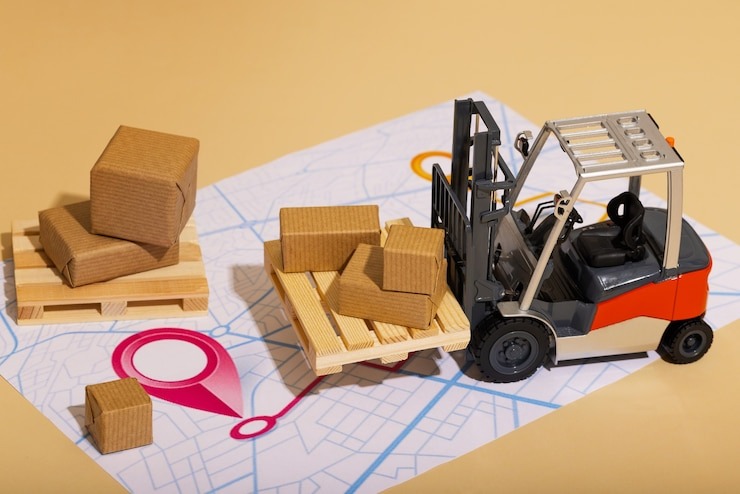
Contents
Material handling equipment on rent is the backbone of numerous businesses, offering a cost-effective solution to manage inventory and streamline operations. Forklift rental companies play a pivotal role in providing these essential tools, enabling businesses to meet their diverse material handling needs without the burden of ownership. Understanding the cost factors associated with material handling equipment rentals is crucial for companies to make informed decisions and optimise their budget allocations.
1. Equipment Type and Capacity
The type and capacity of material handling equipment on rent significantly influence the rental cost. Forklift rental companies offer various equipment options, from standard forklifts to specialised machinery like reach trucks, articulated trucks, order pickers and heavy duty forklifts. Larger capacity forklifts typically command higher rental rates due to their enhanced capabilities in lifting heavier loads and performing more demanding tasks.
2. Rental Duration
The duration of renting material handling equipment directly impacts the overall cost. Forklift rental companies typically offer flexible rental plans. Longer rental durations often entail discounted rates compared to short-term rentals. Businesses should assess their operational requirements and choose a rental duration that aligns with their project timelines and budget constraints. They should consider factors such as yearly rates and charges applicable as per operational shifts.
3. Equipment Age and Condition
The age and condition of the rented material handling equipment play a crucial role in determining the rental cost. Newer equipment models with advanced features may command higher rental fees due to enhanced performance and reliability. Conversely, older equipment options or signs of wear and tear may be available at lower rental rates. Businesses should evaluate the trade-off between equipment condition and rental cost to ensure optimal value for money.
4. Additional Accessories and Attachments
Forklift rental companies often offer a range of accessories and attachments to enhance the functionality of the rented equipment. Attachments such as side shifters, fork positioners, or specialised forks, and also non-marking tyres, enable businesses to customise the equipment according to their specific material handling requirements. Including additional accessories may incur extra costs, impacting overall rental expenses.
5. Maintenance and Service Fees
Maintenance and service fees are essential to material handling equipment rentals. Forklift rental companies are responsible for ensuring the proper functioning and upkeep of the rented equipment throughout the rental period. These services may include regular maintenance checks, repairs, and replacements of faulty components. The cost of maintenance and service fees is typically factored into the rental agreement and varies based on the duration and complexity of the rental. Attachments available for the forklifts increase operational safety and overall efficiency.
6. Delivery and Pickup Charges
Delivery and pickup charges are additional expenses for renting material handling equipment. Forklift rental companies may charge fees for transporting the equipment to and from the rental site. The distance travelled, equipment size and logistical considerations influence the delivery and pickup charges. Businesses should inquire about these fees upfront and factor them into their budget calculations to avoid surprises.
7. Insurance Coverage
Insurance coverage is imperative to protect businesses against liabilities and damages associated with rented material handling equipment. Forklift rental companies may offer insurance options to mitigate risks and safeguard against unforeseen accidents or mishaps during the rental period. The cost of insurance coverage varies depending on the coverage limits, deductible amounts, and the value of the rented equipment.
Conclusion
Understanding the cost factors of material handling equipment on rent is essential for businesses seeking to optimise their operational efficiency while effectively managing expenses. Businesses can make well-informed decisions when partnering with forklift rental companies by considering equipment type, rental duration, condition, accessories, maintenance, delivery, insurance, and service fees. By leveraging rental solutions strategically, businesses can unlock cost savings, enhance productivity, and gain a competitive edge in today’s dynamic marketplace.